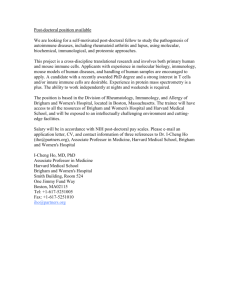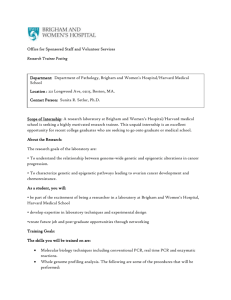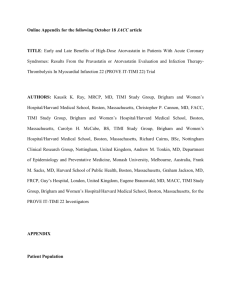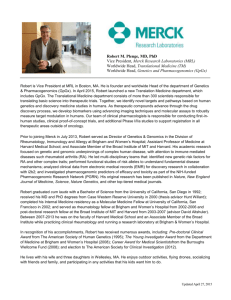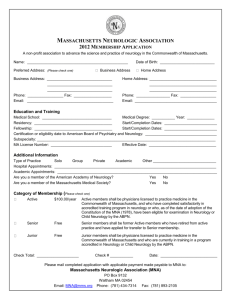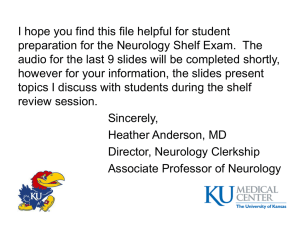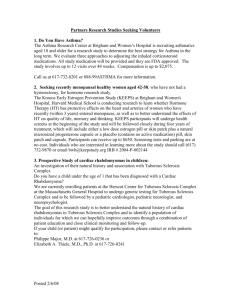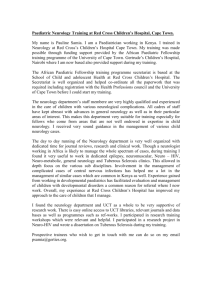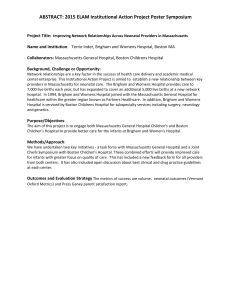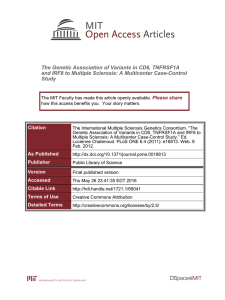Philip L. De Jager, M.D. Ph.D. Dr. Philip L. De Jager is the Steven R
advertisement
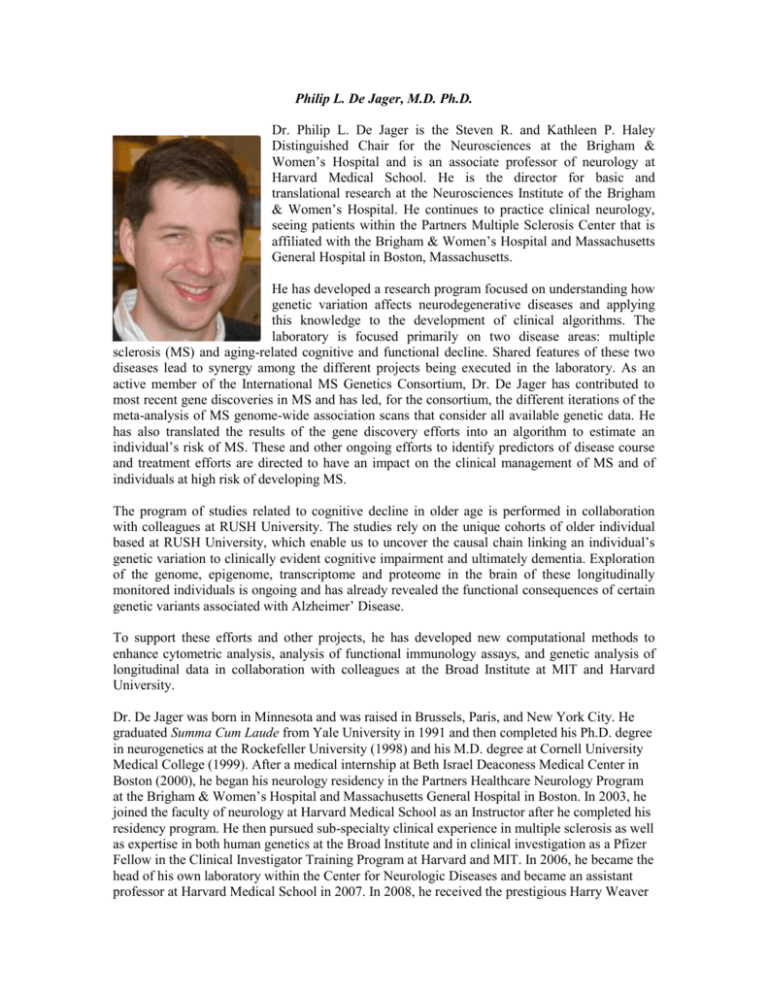
Philip L. De Jager, M.D. Ph.D. Dr. Philip L. De Jager is the Steven R. and Kathleen P. Haley Distinguished Chair for the Neurosciences at the Brigham & Women’s Hospital and is an associate professor of neurology at Harvard Medical School. He is the director for basic and translational research at the Neurosciences Institute of the Brigham & Women’s Hospital. He continues to practice clinical neurology, seeing patients within the Partners Multiple Sclerosis Center that is affiliated with the Brigham & Women’s Hospital and Massachusetts General Hospital in Boston, Massachusetts. He has developed a research program focused on understanding how genetic variation affects neurodegenerative diseases and applying this knowledge to the development of clinical algorithms. The laboratory is focused primarily on two disease areas: multiple sclerosis (MS) and aging-related cognitive and functional decline. Shared features of these two diseases lead to synergy among the different projects being executed in the laboratory. As an active member of the International MS Genetics Consortium, Dr. De Jager has contributed to most recent gene discoveries in MS and has led, for the consortium, the different iterations of the meta-analysis of MS genome-wide association scans that consider all available genetic data. He has also translated the results of the gene discovery efforts into an algorithm to estimate an individual’s risk of MS. These and other ongoing efforts to identify predictors of disease course and treatment efforts are directed to have an impact on the clinical management of MS and of individuals at high risk of developing MS. The program of studies related to cognitive decline in older age is performed in collaboration with colleagues at RUSH University. The studies rely on the unique cohorts of older individual based at RUSH University, which enable us to uncover the causal chain linking an individual’s genetic variation to clinically evident cognitive impairment and ultimately dementia. Exploration of the genome, epigenome, transcriptome and proteome in the brain of these longitudinally monitored individuals is ongoing and has already revealed the functional consequences of certain genetic variants associated with Alzheimer’ Disease. To support these efforts and other projects, he has developed new computational methods to enhance cytometric analysis, analysis of functional immunology assays, and genetic analysis of longitudinal data in collaboration with colleagues at the Broad Institute at MIT and Harvard University. Dr. De Jager was born in Minnesota and was raised in Brussels, Paris, and New York City. He graduated Summa Cum Laude from Yale University in 1991 and then completed his Ph.D. degree in neurogenetics at the Rockefeller University (1998) and his M.D. degree at Cornell University Medical College (1999). After a medical internship at Beth Israel Deaconess Medical Center in Boston (2000), he began his neurology residency in the Partners Healthcare Neurology Program at the Brigham & Women’s Hospital and Massachusetts General Hospital in Boston. In 2003, he joined the faculty of neurology at Harvard Medical School as an Instructor after he completed his residency program. He then pursued sub-specialty clinical experience in multiple sclerosis as well as expertise in both human genetics at the Broad Institute and in clinical investigation as a Pfizer Fellow in the Clinical Investigator Training Program at Harvard and MIT. In 2006, he became the head of his own laboratory within the Center for Neurologic Diseases and became an assistant professor at Harvard Medical School in 2007. In 2008, he received the prestigious Harry Weaver Neuroscience Scholar Award from the National MS Society, and was promoted to associate professor in 2010. Finally, he became the director for basic and translational research at the Neurosciences Institute of the Brigham & Women’s Hospital in 2010, reflecting his growing role in generating and leading multidisciplinary research projects across the neurosciences.
